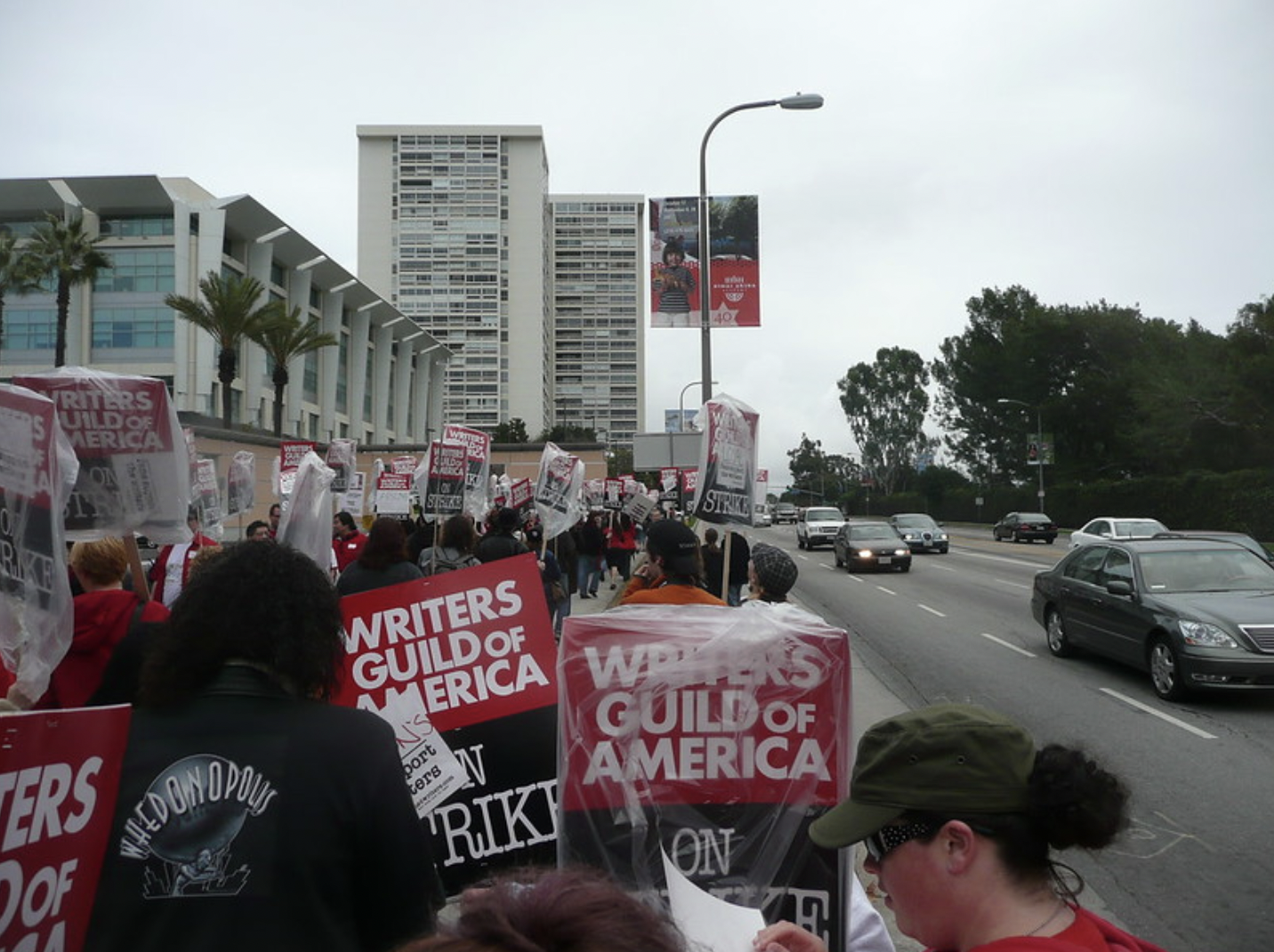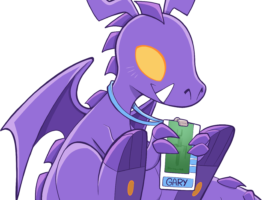 As of 12:01am PT this morning, the Writers Guild of America (WGA) strike is on — and while the strike will have much larger ramifications both for writers’ livelihoods and Hollywood as a whole, as we are a site all about San Diego Comic-Con, you may be wondering: Will this affect the con this summer? And the answer is, in short: Probably.
As of 12:01am PT this morning, the Writers Guild of America (WGA) strike is on — and while the strike will have much larger ramifications both for writers’ livelihoods and Hollywood as a whole, as we are a site all about San Diego Comic-Con, you may be wondering: Will this affect the con this summer? And the answer is, in short: Probably.
There are plenty of great resources to read more about the WGA strike (including Deadline, Variety, and more) if you’re interested in learning more about the issues at play here — but if you’re simply here to learn how it will affect your convention this summer, we’ll do our best to explain.
What is the WGA Strike?
The WGA is a labor union composed of the writers for TV, movies, news programs, documentaries, animation, and everything in between in the entertainment industry. Every three years, the WGA strikes a new contract with the Alliance of Motion Picture and Television Producers (AMPTP), which sets minimum compensation for writers, as well as outlines rules, regulations and protections for writers within the industry.
This year, the biggest sticking points according to the WGA are that with the shift to streaming, “writers are finding their work devalued in every part of the business. While company profits have remained high and spending on content has grown, writers are falling behind. The companies have used the transition to streaming to cut writer pay and separate writing from production, worsening working conditions for series writers at all levels… From their refusal to guarantee any level of weekly employment in episodic television, to the creation of a “day rate” in comedy variety, to their stonewalling on free work for screenwriters and on AI for all writers, they have closed the door on their labor force and opened the door to writing as an entirely freelance profession.”
The AMPTP and the WGA did not reach an agreement by the deadline, so now, a strike is on until an agreement can be reached.
How will this affect entertainment?
As of today, any members of the WGA are “pencils down” on anything they were working on — so no new episodes, movies, or other paid work is happening. If a movie is currently in production, even if a director is also the writer, that director may not now re-write lines, so the script will have to stay exactly as is until the strike is over.
You’ll immediately begin to see the effects of the strike in late night talk shows, as those are typically filmed on the same day they air (and they have already started going dark). Without writers, talk shows move almost immediately into reruns. Next affected will likely be soap operas, who film only a little in advance. And finally, many of your television shows will likely soon be halting production once they run out of already-written scripts. Even if the strike is resolved relatively quickly, expect a shift to when certain TV shows not already finished filming will be airing, as their production will likely now be delayed.
Did the Last Writer’s Strike Affect San Diego Comic-Con?
The last WGA strike was in the fall of 2007, which lasted for 100 days from November 2007 to February 2008. Because that was after/before the convention, the effects were minimal to the convention itself.
Could the WGA Strike Affect This Year’s San Diego Comic-Con?
Because of the timing, this is a very different case in 2023 than it was back in 2007. At time of press, we are 78 days away from San Diego Comic-Con 2023 — so if the strike were to last for 100 days again, that means that it would last until after the convention had passed. Should that happen, showrunners and writers of TV shows, movies, animation, and beyond likely would not be attending the convention in a work capacity.
The WGA strike website confirms that its members are “”prohibited from making… promotional appearances about your work” until the strike is over, which would also include projects already completed.
Depending on how far along your favorite show or film is in production, it may still be delayed, and feel they’re not ready now to attend. Movies might also be delayed, even if to help give more of a buffer to other movies now that won’t be able to meet their deadlines — pushing them outside of the window of promotion for this year’s con.
And even if the strike is over relatively quickly and before July, with the production delays, studios may feel it’s more important to keep everyone working on the show the week of the con than to take more time off to promote their TV series.
There’s an even bigger question mark here though. The Directors Guild of America (DGA) is set to begin their own negotiations with the AMPTA on May 10, and their contract expires June 30. SAG-AFTRA, the Screen Actors Guild begins their negotiations on June 7, and their contract also expires June 30. According to Deadline, there are currently talks that both organizations could theoretically strike in solidarity with the writers if an agreement is not reached before June 30.
Should either organization strike, their members would also be prevented from doing publicity on their projects — meaning there is a world in which no actors are allowed to promote their upcoming projects at San Diego Comic-Con.
And if you think you’re not into Hollywood stuff anyway, and you prefer the show floor, we have one question for you: Just where do you think the thousands of attendees normally in Hall H and Ballroom 20 are going to flock to instead? The answer is very likely the exhibit floor, making exclusives lines longer and more difficult to obtain.
All of this is currently very “what if”, and remains to be seen how it shakes out. But you should be keeping an eye on how the strike is going, and aware that it will likely affect your life in some way — yes, even you, San Diego Comic-Con attendee.



